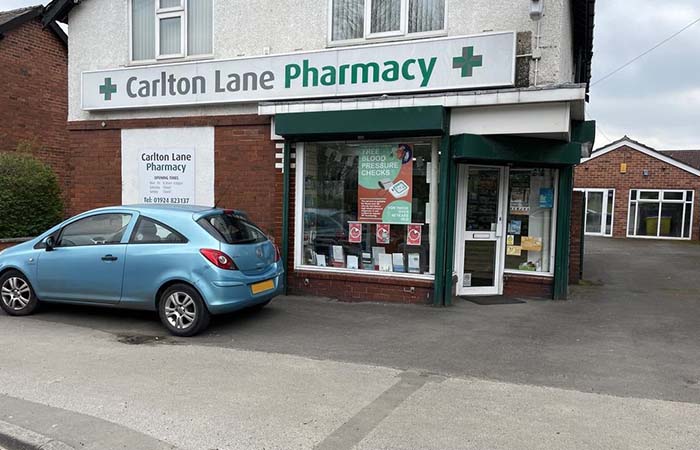To buy or not to buy: A look at taking on a new pharmacy
In News
Follow this topic
Bookmark
Record learning outcomes
With the regulatory requirements for buying and selling pharmacies stricter than for general businesses, what do you need to consider if you want to take on a new pharmacy? Saša Janković finds out
The rate of pharmacy acquisitions may have slowed since the Lloyds fire sale, but demand is still there. Susan Hunneyball, partner at Gordons Solicitors in Guildford, Surrey, is a lawyer specialising in pharmacy regulation, and says she has noticed “a big increase” in instructions to apply for inclusion in the pharmaceutical list.
“The Lloyds rush has definitely ended,” she says. “But the new applications are often in areas where a Boots pharmacy has closed.”
Hutchings Consultants handled a significant number of sales of LloydsPharmacy branches in 2023, and associate director Paul Steet says he anticipates a steady increase in levels of buyer confidence through the remainder of 2024.
“Pharmacies that offer the greatest potential to provide patient services will garner the most significant interest from potential buyers,” he says, albeit with different geographical variations.
Steet says around 50 per cent of the disposals in England sold through Hutchings Consultants so far this year have been independent contractors deciding to sell, with the remaining 50 per cent shared between small groups and larger groups selling either clusters or individual units, often in outlier locations.
First time buyers have accounted for approximately 52 per cent of the acquisitions, followed by existing pharmacy owners seeking to expand, and group owners purchasing strategically securing the remainder of the opportunities.
In Wales, independent sellers retiring have accounted for all of the sales completed so far this year with existing pharmacy owners and first-time buyers acquiring equally.
The comparatively smaller Scottish market remains buoyant with independent sellers featuring in all completions and group owners, with their greater financial power and appetite, accounting for acquisitions.
Meanwhile, at pharmacy property advisor Christie & Co, director of pharmacy Jonathan Board says pharmacy acquisitions in 2024 have mainly been driven by opportunistic and defensive purchases of corporate divestments.
“Purchases by first time buyers have accounted for roughly 20 per cent of our completions, 13 per cent have been sold to independent operators, and the remaining two-thirds have gone to existing and regional operators”, he explains.
Legal complexities
For pharmacists looking to take on, or divest a pharmacy, Chris Peace, partner at Brabners LLP, offers some top tips for a smooth transaction.
“Whether you’re a buyer or a seller, the single most important step is to surround yourself with good quality specialist professionals who are experienced in the sector – not just lawyers but accountants, bankers and finance brokers,” he says.
“I have seen so many deals where inexperienced advisors have been dabbling in the sector and it can be really dangerous for all concerned if they get things wrong. While the process is a legal one, there are so many other factors which need managing – financial, regulatory and operational matters – and really good quality advisers will understand all of those aspects.”
And as the saying goes, if you buy cheap, you may well end up paying twice. “It’s tempting to find professionals who are cheap to save some money, but in a lot of cases that will backfire,” adds Peace.
“Good quality specialist knowledge usually comes at a price, but in my view it’s money very well spent.”
Funding and finance
Existing pharmacy owners will no doubt have a relationship with a funding bank already, and Jonathan Board says the funding market continues to be “robust” for buyers and businesses that can evidence “sustainable income and profit streams to service a loan”.
But what about first time buyers? “While many existing owners will have a pre-existing relationship with a bank, new buyers entering pharmacy ownership for the first time won’t usually benefit from this and are often unsure which lenders to approach,”maintains Steet.
“Many banks’ healthcare teams do not possess the necessary knowledge or experience needed to truly understand the target business, so we recommend buyers utilise the services of established pharmacy finance brokers who can advise clients which lenders offer the most competitive interest rates and lending solutions, help navigate the complexities of loan applications and provide guidance throughout the transaction.”
Having an ‘offer in principle’ from a bank or other financial institution that it will finance your acquisition will build confidence with the seller, adds David Seddon, partner at Brabners LLP. “It will ensure that when you make your bid for the pharmacy it stands out from the crowd – which will also speed up the acquisition process if and once your offer is accepted.”
Planning and communication
As well as getting the legal and financial side of things in place, there are some more general, but no less important, factors to consider.
Christie’s Board recommends being realistic about the wider costs: “The first thing for anyone looking at the market is to fully understand their budget and recognise that there are numerous costs on top of simply the deposit for the business,” he says. “For example, the stock needs to be paid for if it’s an asset sale, net current assets for a share sale, working capital, and also work done by solicitors, accountants, and consultants all need to be budgeted for.”
Steet believes getting an accurate valuation is key to avoid wasted time and disappointment. “Potential buyers will want to understand the performance of the business as will a lender, if bank support is required, and sellers should be prepared to provide financial information about the business such as accounts, FP34 statements, VAT returns and OTC income as standard,” he says.
Once terms have been agreed, Seddon says finalising the deal needs to be the priority. “Many pharmacy acquisitions are often unnecessarily protracted due to one or both of the parties being underprepared or failing to provide information or instructions within reasonable timescales,” he says. “Setting a realistic target date for completion – following discussions with your professional advisers – at the outset is likely to focus the minds of everyone involved.
“My key piece of advice is to set dedicated management time aside if you want the purchase/sale to go through as quickly and efficiently as possible. It is worth having a dedicated hour every week for reading documents and responding to emails.”
Even if all this is in place, Brabners’ Peace says buyers and sellers should still be realistic on timing. “The average pharmacy transaction takes around six months now, from lawyers being instructed to completion, because of requiring NHS consents, having to get landlords to agree to grant new leases or dealing with bank processes.
"All of those third parties can have an influence on the speed that the transaction gets dealt with, so it is important to take advice at the outset and understand the likely timeframes. A degree of patience is definitely required when buying or selling a pharmacy.”
Case study: 'Don't spread yourself too thin'
Matthew Clent bought Hayshine Pharmacy in Welling, South East London, with the help of Hutchings Consultants in 2020. Since this first purchase he has expanded the Hayshine Group further, either choosing to purchase by himself outright, or as part of a joint venture with other business partners.
His advice to first time buyers: “Ensure you understand how you will fund a purchase before you make an offer for a pharmacy business. Many sellers give greater consideration to an offer made with solid funding support over a potentially higher offer lacking proof of finance.”
And for current owners considering expanding their existing business, he advises that serious consideration should be given to the logistical side of the expansion: “In other words do not spread yourself too thin!”
Case study: 'Remember management and ownership are different'
After 17 years of ownership, Susan Bargh sold her pharmacy in the village of Lofthouse in March this year.
A well-established standard hours community pharmacy dispensing an average of 9,778 items per month, Christie & Co handled the sale of Carlton Lane Pharmacy to a trio of new owners from Raif Pharma Ltd.
Pharmacist Kelly Osadolor – one of the new owners – has worked as a manager and a superintendent for 10 years, and says the purchase was the obvious next step.
“My two fellow directors and I were flexible about where in the country we might buy,” he says. “When this pharmacy came up for sale we thought it was a great opportunity.”
Since the purchase, Osadolor says there have been a few changes in the pharmacy: “We’ve spent time trying to understand the way our staff want to work, and we also changed our PMR system from RxWeb to Titan, as we felt that would help us keep a better eye on things.”
His advice for others looking to buy their first pharmacy is to choose a broker you trust and embrace the process: “You never truly know all the ins and outs as much as you want to. And don’t forget there’s a big difference between management and ownership.”


